
The Soft Boys were an English rock band led by Robyn Hitchcock primarily during the 1970s, whose initially old-fashioned music style of psychedelic/folk-rock became part of the neo-psychedelia scene with the release of Underwater Moonlight.
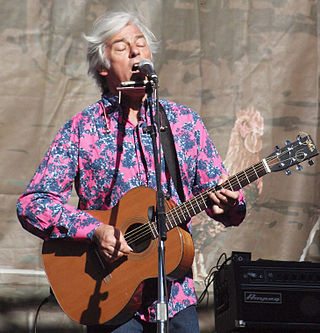
Robyn Rowan Hitchcock is an English singer-songwriter and guitarist. While primarily a vocalist and guitarist, he also plays harmonica, piano, and bass guitar. After leading the Soft Boys in the late 1970s and releasing the influential Underwater Moonlight, Hitchcock launched a prolific solo career. His musical and lyrical styles have been influenced by Bob Dylan, John Lennon, Syd Barrett, Captain Beefheart, Martin Carthy, Lou Reed, Roger McGuinn and Bryan Ferry.

Globe of Frogs is the sixth album released by Robyn Hitchcock and his third with his backing band The Egyptians, released on A&M Records in 1988. Made in London, it was recorded by the Egyptians along with Pat Collier, and emerged as the group's debut after signing to major label A&M.

Fegmania! is the fourth studio album by Robyn Hitchcock and his first with his backing band The Egyptians.

"Arnold Layne" is a song by English rock band Pink Floyd. Released on 10 March 1967, it was the band's first single release. It was written by Syd Barrett.
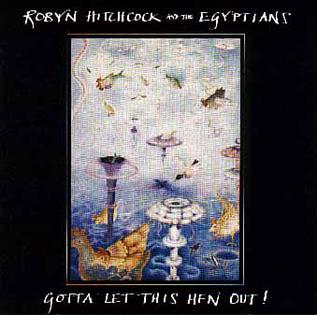
Gotta Let This Hen Out! is a live recording of Robyn Hitchcock and the Egyptians recorded in April 1985, shortly after the group had come together for Fegmania!.

Element of Light is the fifth studio album by singer-songwriter Robyn Hitchcock and his second with his backing band, the Egyptians. It was released in 1986.

Whenever We Wanted is American singer-songwriter and musician John Mellencamp's 11th album, and the first to be credited simply to Mellencamp's given name.
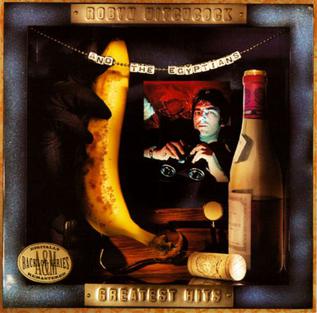
Greatest Hits is a collection of material by Robyn Hitchcock and the Egyptians from the A&M period 1988-1992, spanning the albums Globe of Frogs, Queen Elvis, Perspex Island, and Respect.

Queen Elvis is the seventh studio album by English musician Robyn Hitchcock, released on A&M Records in 1989. It is his fourth studio album to be released with his band The Egyptians.

Eye is the eighth studio album and fourth solo album by Robyn Hitchcock. It was released in 1990 on Glass Fish (UK) and Twin/Tone Records (US). This was Hitchcock's only solo album released between 1985 and 1995, a period in which he recorded most of his music with his backing band, the Egyptians.
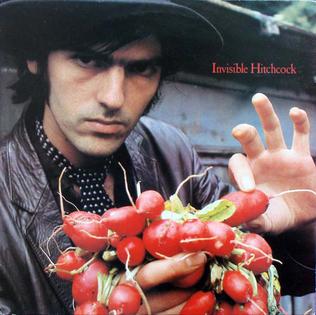
Invisible Hitchcock is a studio album by Robyn Hitchcock. A collection of leftovers and out-takes recorded from 1981–1985, Hitchcock's sleeve notes explain that the album was assembled because the songs "didn't fit in with what I was doing at the time and do fit in with each other now".
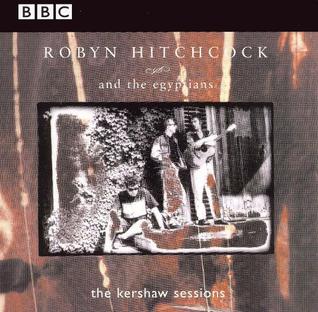
The Kershaw Sessions is an album by Robyn Hitchcock and the Egyptians, comprising nineteen titles recorded live between 1985 and 1991. The album was released in 1994.

Moss Elixir is an album by Robyn Hitchcock, released in 1996. It contains twelve original compositions, predominantly acoustic.

Live At The Cambridge Folk Festival is a 1998 album by Robyn Hitchcock & The Egyptians, containing live recordings from the Cambridge Folk Festival of Hitchcock's back catalogue.
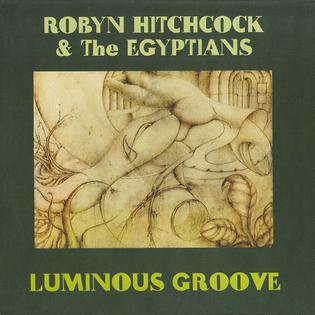
Luminous Groove is a 2008 compilation box set of the albums Fegmania!, Gotta Let This Hen Out and Element of Light (1986) by Robyn Hitchcock and the Egyptians. The box set was issued on CD and vinyl. The versions included in the CD box set are the extended reissues from YepRoc. The set also includes 2 discs of B-sides and rarities called Bad Case of History.

Respect is the tenth studio album by Robyn Hitchcock and his sixth with backing band, the Egyptians, released on A&M in 1993.

Body Talk Pt. 2 is the sixth studio album by Swedish singer Robyn, released on 6 September 2010 by Konichiwa Records. The album is the second part of the Body Talk trilogy, which consists of three mini-albums, all released during 2010. Robyn started working on songs for the album when Body Talk Pt. 1 (2010) was still in development, and she collaborated with Klas Åhlund, Kleerup, Savage Skulls, Diplo and Snoop Dogg. Musically, the songs on Body Talk Pt. 2 are upbeat and a mixture between electro, house, hip hop and disco.
Child of the Universe may refer to:

Old Paint is the seventh studio album by Australian country singer Gina Jeffreys. It was released on the Independent label Ocean Road Music and distributed by Sony Music Australia in September 2010.



















